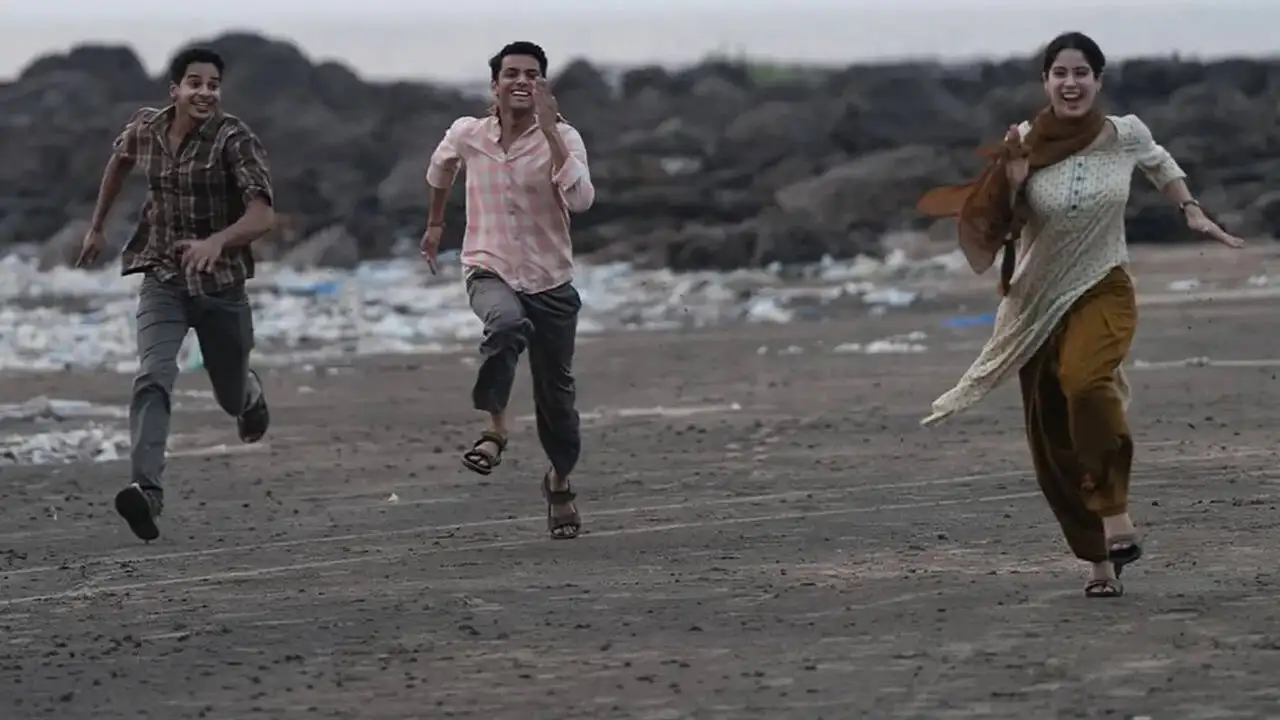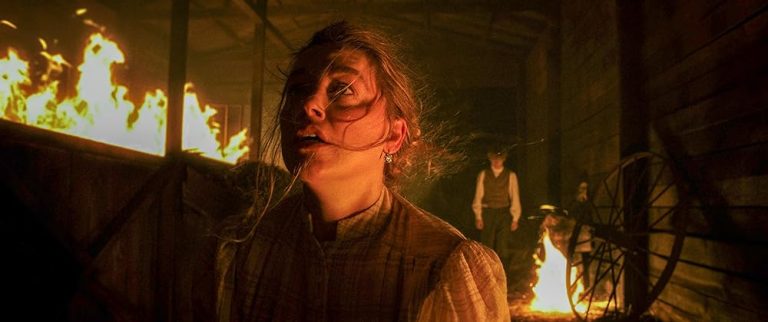PS – This article contains spoilers: In today’s landscape of mainstream cinema, it is rare to find a film that continues to haunt the mind long after the lights come up. It has almost become a ritual to share a good laugh and move on, as if nothing of consequence transpired in those two popcorn-filled hours. “Homebound” (2025), however, brings a suffocating end to that formality.
Neeraj Ghaywan’s sophomore feature isn’t just a motion picture– it’s an experience: transformative, searing, and profoundly political. It is the ugly duckling in a pool of white swans– not one you can dismiss or toy with, but one that holds up a mirror to society that your privilege can no longer shield you, even if it’s a conversation you’ve long been avoiding.
Chandan and Shoaib, the protagonists of Ghaywan’s world, stand at opposite poles– the former, a Dalit man from a scheduled caste; the latter, an orthodox Muslim. Though they share little in common, they are bound together, ever-so-strongly, by an unrelenting desire to break free from the shackles imposed by society. Yet as the film unfolds, we realise that more than society, it is themselves they must escape from.
In his relentless attempt at spotlighting pressing socio-economic realities, Ghaywan lays bare a blistering truth: a significant portion of one’s identity is predetermined at birth, with no room for choice. The rest of life becomes a sentence, a punishment– a burden of carrying that truth until the very last day. What follows is a cruel decision: to fight for balance, or to conceal and retreat in order to survive. Both paths are unjust, yet both remain undeniable verities.
What “Homebound” does effortlessly is interrogate identity, religion, and caste erasure through a deeply personal, juxtaposed lens. Its characters do not merely wear these labels; they live and breathe them each day. For those born with higher immunities, such hierarchies might appear to matter only when filling out forms or applying for jobs. Yet the film insists otherwise– it roots discrimination in the most mundane acts: filling a water bottle, sharing a meal. In these banal moments, when surnames don’t align with the standards, one is made distinctly aware of exclusion.
Several poignant moments highlight this duality– the two-edged sword of identity. To reveal or not to reveal. That is the question. The stark dichotomy emerges in the mindsets of Chandan and Shoaib. Chandan, quiet and withdrawn, is the boy who never raised his hand in class, who always chose silence. On official forms, he ticked the “General Quota” box despite belonging to a Scheduled Caste– shielding himself from torture and name-calling at his university or police job. So fearful of revealing his surname, he often erased the question altogether, retreating into half-truths.
The tremor in his voice– brought to life brilliantly by Vishal Jethwa– betrayed his terror at disclosing who he truly was. To survive, he would dismiss caste inquiries by calling himself a Brahmin or restricting himself to just his first name. His lover, Sudha, captures the futility of such concealment when she tells him: “Even if we end up with the same job, the same uniform, solving the same problems, we’ll still eat on the floor while they sit on high-chairs. That is why I carry my own chair wherever I go.”
Do Check Out: Homebound (2025) ‘Cannes’ Movie Review: Neeraj Ghaywan’s Sophomore Feature Continues His Caste Examination With A Classically Dramatic Touch
Shoaib, on the other hand, is Chandan’s opposite. Proud, outspoken, and uncompromising, he wears his religion and identity on his sleeve. He refuses to conceal his Muslim background, never bowing under pressure. But his courage comes with a cost. He is met with intensified discrimination and hostility. His senior refuses to let him touch his water bottle, insisting he will fill it himself.
At work, he is asked to provide unnecessary documents, subjected to repeated background checks designed to exhaust him. At a corporate party, he is mocked as a Pakistani sympathiser, handed Lahori Korma to taste because, of course, he would “know how it should be cooked.” What begins as playful banter descends into humiliation so deep that Shoaib quits his respectable job and accepts a demotion he never wanted.
The two men embody opposing strategies for survival: Chandan hides and climbs the ladder, Shoaib reveals and slips down it. Yet Ghaywan’s message is stark: neither path leads to liberation. Our society has made existence itself a curse, forcing individuals into impossible binaries: reveal or conceal, fight or retreat. Whichever choice you make, the cost is unbearable. We impose so many labels, standards, and hierarchies that embracing difference feels like an affliction. The film suggests we are inching toward a dystopia of uniformity, where everyone becomes a puppet, a cog, a robot.
This despair resonates most vividly in the film’s pandemic sequences. Survival is not simply about resilience… It’s about origins, surnames, and connections. Aid is rationed according to where you come from and who you are. While the wealthy remain shielded in their mansions or travel in SUVs, the poor trudge on foot from village to village, changing transport endlessly, only to suffer most despite having laboured hardest. Their surnames lack weight; their identities offer no shield. And yet, even in this climate of abandonment, they find refuge in each other. What society denies them in dignity, they reclaim in companionship.
At every turn, life hurls another curveball: brief moments of fortune followed swiftly by storms. The narrative’s peaks and troughs leave the audience breathless, aching with the heaviness of not belonging. There is not a single setting in which the weight of their identities did not bear down on them, except when they are in each other’s presence. Only there is a certain sense of unconditionality, where differences dissolve and only solidarity remains.
“Homebound” ultimately uncovers two profound truths. The first is that living in a society that prides itself on being liberal, diverse, and democratic is an unrelenting battle, because beneath the rhetoric, it remains chained to hierarchies of religion, caste, and identity. The film reveals how difficult it is to simply exist when your very name, your faith, or the community you belong to becomes a marker that others use to discriminate against you. There is no neutral ground, no win-win situation in a world where the baggage of identity follows you everywhere.
And yet, the film also insists on something softer, something hopeful. Even when society erases you, strips you of the weight of your surname or background, some bonds cannot be reduced to labels. There is a space where friendship, loyalty, and chosen family create a home untouched by prejudice. That’s where “Homebound” lingers… in the tension between erasure and belonging, between bitterness and tenderness. It shuns the cruelty of systems that divide, while at the same time reminding us of the beauty of bonds that heal, protect, and endure.








